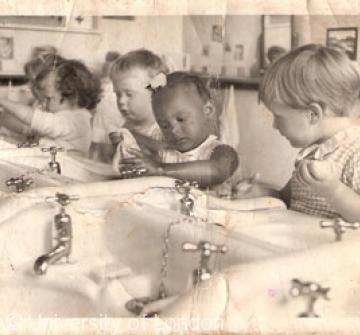African-Caribbeans, 1948-1990: an introduction

Few migrant communities have had such an ambivalent and transformative relationship with Bristol as has the African-Caribbean community.
Previous chapters have discussed the intermittent presence of people of African descent in Bristol. The contemporary African- Caribbean presence is the legacy of post-war migration. The overwhelming majority of these migrants came from the many Caribbean islands that were until the 1960s part of the British Empire. Centuries of British rule had led the people of the Caribbean to regard Britain as the Mother Country. The reality was more complex. Caribbean culture was actually a unique fusion of African and European elements and the ‘Mother Country’ had left her Caribbean colonies woefully underdeveloped.
Caribbean migrants came to Britain to explore opportunities that were inconceivable in the sending societies. Migration was made possible by legislative changes on both sides of the Atlantic. The British Nationality Act of 1948 had granted West Indians right of entry to Britain, whilst restrictive legislation passed in the USA in 1952 made Britain the destination by default for West Indian emigrants. Yet most came not to settle but to work for five years and then return to the Caribbean. Even in later life many continued to entertain the hope of one day returning home.
Content generated during research for the paperback book 'Bristol: Ethnic Monorities and the City 1000-2001' (ISBN 13 : 978-1-86077-477-5 ) for the England's Past for Everyone series





